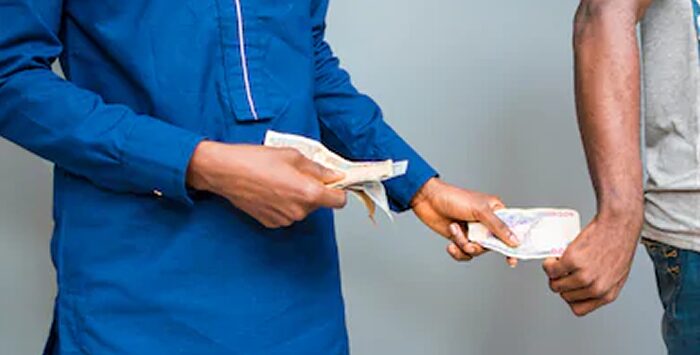News
Nigerians Paid $1.26 Billion in Bribes Last Year, Survey Shows

A recent survey by the National Bureau of Statistics (NBS) has revealed the extent of bribery in Nigeria with citizens paying an estimated N721 billion or $1.26 billion in cash bribes in 2023.
The report highlights a significant discrepancy between rural and urban areas, with rural residents bearing a higher burden of bribe payments.
According to the NBS report, “The frequency of bribery is, on average, higher in rural areas than in urban areas. In 2023, bribe-payers living in urban areas paid on average 4.5 bribes, while those living in rural areas paid on average 5.8 bribes.”
This extensive bribery, amounting to 0.35% of Nigeria’s GDP, shows the persistent challenge of corruption in Africa’s most populous nation.
Despite various government pledges to combat corruption, public officials continue to demand and receive bribes to perform their duties, affecting the delivery of essential public services.
The survey, conducted between October and November, indicates that the estimated number of bribes exchanged decreased from 117 million in 2019 to 87 million in 2023.
This decline appears to be linked to reduced interactions with public officials, which dropped from 63% of the population in 2019 to 53% in 2023.
Bribery was most prevalent among prosecutors, land registry officers, and customs and immigration officials, with judges and magistrates receiving the largest kick-backs.
Despite anti-corruption promises by successive governments, public officials have developed a reputation for converting public funds for personal use and demanding gratifications for performing their functions.
The NBS report also notes a growing resistance to bribery among Nigerians, with 23% refusing to pay bribes when demanded.
This defiance is partly fueled by the ongoing cost-of-living crisis, exacerbated by currency reforms and the partial removal of a gasoline subsidy, which has heightened economic hardship.
The survey participants ranked corruption fourth on their list of priorities, behind economic hardship, insecurity, and unemployment.
Interestingly, bribe payments in the private sector more than doubled in 2023, though public-sector corruption remains dominant in the West African nation.
The data reveals that less than a third of Nigerians believe the government is effective in fighting corruption, a stark decline from more than half in 2019 during former President Muhammadu Buhari’s tenure.
Buhari, first elected in 2015 on promises to end corruption, left office with the nation still grappling with pervasive bribery and corruption.